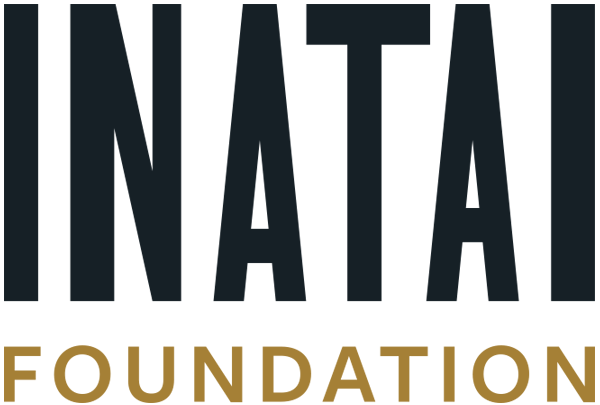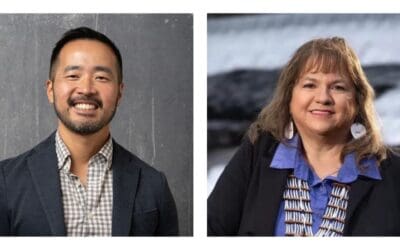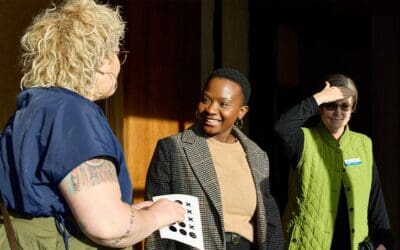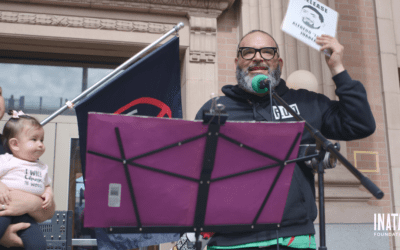Until Feb. 1, 2023, we were Group Health Foundation. This post was written under our former identity. To learn more about our new name, read our announcement here.
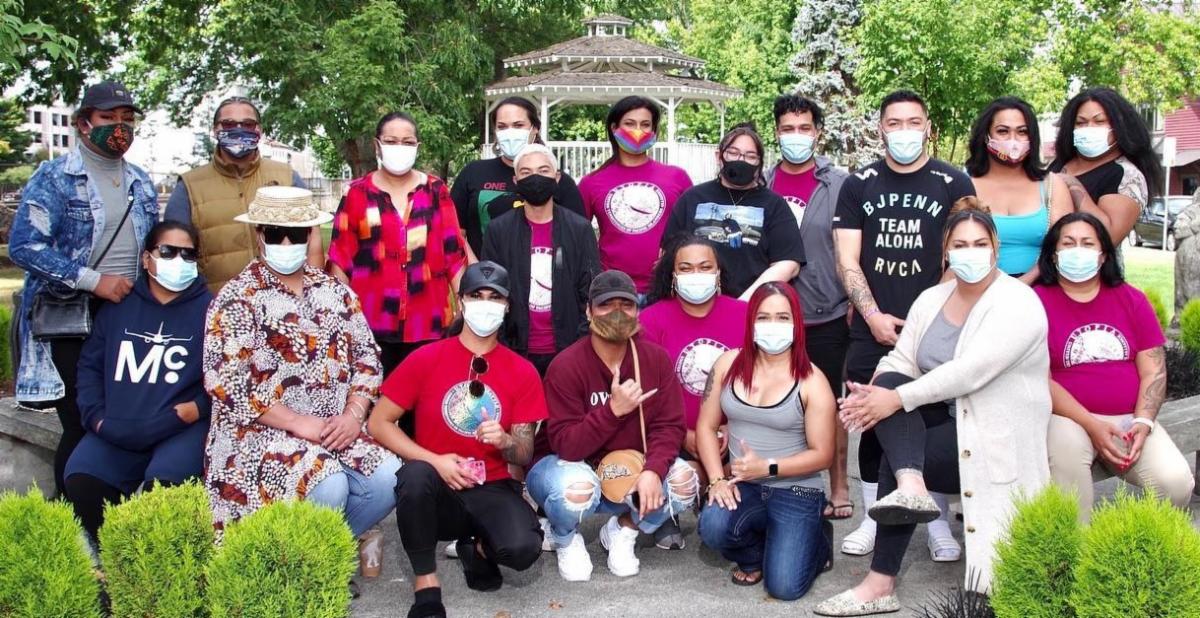
The UTOPIA team, photo courtesy of the organization.
Connection making and community building are integral to the work for health equity and justice. Group Health Foundation provides sponsorship support for gatherings—in-person or virtual—that benefit organizations and the communities they serve, while making progress toward a better future in Washington State. Read “‘We wanted to raise joy’: Three sponsorship recipients on the events they’ve hosted” to learn about other organizations serving their communities.
UTOPIA Washington is a grassroots organization that serves queer and transgender Pacific Islanders through direct services, organizing, and advocacy. In November 2019, UTOPIA gathered board members, staff, volunteers, and community leaders for a multigenerational retreat in Lacey. The agenda included relationship building and work to refine UTOPIA’s vision and strategic plan for the coming years. Taffy Johnson is executive director and Regina Fonoti-Parker is the development manager.
Q. Why was it important for UTOPIA to have this retreat?
A. (Taffy) Our work is really hard. It has been overwhelming for this group of community members who continue to do outreach, who continue to do social justice work, and who continue to be on the front line as grassroots organizers. And so, it was really important for our community to find a space where we can self-heal and come together to look back at the work that we’ve been doing and try to build a more positive future.
We can’t continue to do this work if we’re not taking care of ourselves. We want to make sure that we’re balancing the work that we’re doing with our personal lives, that we reach out to our organizers, and that we’re all okay and that everyone is working at a minimal capacity. And, we want to make sure that our folks are not always being pushed to the front line and that they can get together, find healing, solace, and peace so that they can go back out and then organize again for the next year.
Q. After being part of the retreat, four of your volunteers decided to join your board, including one youth member. That’s so great.
A. (Taffy) Yeah. If we’re going to talk about being inclusive of our youth, we should also create that space on our board. That is part of the work that we do here at UTOPIA, incorporating all different community members, from our queer youth to our elders. Everybody in our community is at the table. We don’t want to have a table where all the decisions are made by a group of people who are not in the community, who don’t share our lived experiences or do not know anything that is impacting BIPOC communities, queer, transgender, and nonbinary folks on the street, or people in rural communities. So, it was really important that we create a multigenerational space where we can all learn from each other.
Q. What was something you learned about doing this retreat? What was something that worked that you would like to share with others?
A. (Taffy) We always incorporate our cultural values into the work that we do. Pacific Islanders are a big community and we wanted to make sure that the activities and planning incorporated different parts of each island nation. We have Samoans, Tongans, Hawaiians, Chamorros, and Micronesians. We wanted to make sure that we have cultural protocols incorporated. This is why it’s really important that we have our elders there and also why it’s really important we have all of our youth—our babies there—because that’s part of our upbringing. One thing that we incorporated into this retreat was in the evenings we would build a fire because that’s what our ancestors did, convening around the fire and sharing stories.
Something we talked about was our ancestors’ ways of meeting. For the board, we have Robert’s Rules of Order, but I also think it’s important that we incorporate our Indigenous practices into our meetings. That means stop policing people when they’re speaking or stop telling them to be quiet when it’s not their time to speak. That is how our culture plays into our meetings for UTOPIA. We want to make sure everyone understands their importance, that they are all at the table.
Q. Is there anything else you’d like to add?
A. (Taffy) Being from a Pacific Islander community and having roots in Indigenous-specific values, it’s very important to our community how we organize. And all the work that we do—whether virtually or out in the community—centers around healing through community care. It’s based on Indigenous and Pasifika models of how we do Talanoa Dialogue. When we do that, it comes from a place of healing, it comes from a place of care, and that we are able to provide that trust with the community. I wanted to add this point because we want to continue to build this community and lean on the strengths of our bond as Indigenous, as Pasifika communities.
A. (Regina) I just want to add something to what Taffy said. Before I joined the UTOPIA staff, I was a community member for UTOPIA. A lot of these programs and projects changed my life. It’s been a blessing. So yeah, every program and project that we’re doing, and just going into the depths of UTOPIA’s mission and vision and the work we’re doing here, I’m learning that, wow, this is deep. I’m very proud to be part of such a great movement and work that is changing lives daily.
